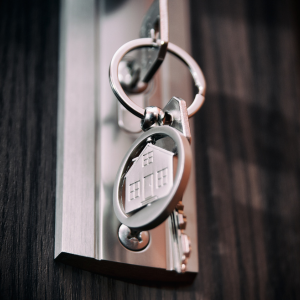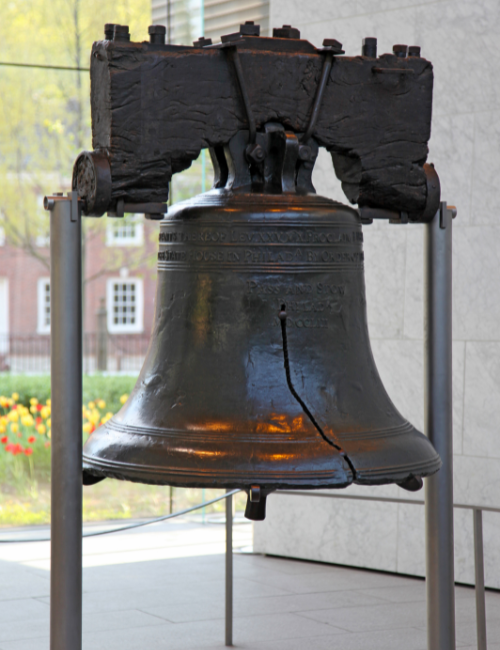
When you inherit a house in Pennsylvania, selling your parents’ house can be a difficult but necessary job. This guide will help you get through the complicated process of selling a house you inherited in Pennsylvania, from learning about the state’s probate rules to advertising the house properly. Whether you’re dealing with emotional ties or financial concerns, this guide is meant to help you make the move as easy as possible. Find out the most important things you need to know to handle this big event in your life and make sure you get the most out of it while honoring your family’s history.
Understanding the Probate Process in Pennsylvania
Anyone in Pennsylvania who wants to sell an inherited home needs to know how the probate process works. This legally required process makes sure that the estate is handled and divided correctly. It usually needs the help of skilled estate executors and maybe even a probate lawyer. Before the property can be sold, there are a number of important steps that need to be taken, such as making sure the will is real and taking care of bills and taxes. Knowing how probate estates work is important for making the process of going from gift to sale go smoothly. This part will go into detail about the most important steps in Pennsylvania probate, which will help people who are thinking about selling.
Essential Steps in the Pennsylvania Probate Process for Selling Your Parents’ House
If you want to sell a house in Pennsylvania that you inherited, you need to know how to quickly get through the probate process. The first step is to authenticate the will, which is a very important step that makes sure the wishes of the person who died are legally binding. Without a legal will, the process could get trickier, which can lead to arguments between people who might be heirs.

As the estate executor, it’s your job to make an inventory of the probate estate. This means making a thorough list of all the assets in the estate, including the house that will be sold. These things need to be evaluated to find out how much they are worth on the market right now. This is an important step for anyone who wants to sell their house quickly and without any problems.
In Pennsylvania, estate executors are responsible for certain things, such as paying off any bills and taxes before giving out the money from the estate. If the estate’s bills aren’t paid off, they could make the sale more difficult. Talking to a Pennsylvania-experienced probate lawyer is a good idea to make sure that all the rules are followed and that any possible responsibilities are dealt with properly. This step covers both your interests and the interests of the people who might buy your stuff, making sure the deal goes smoothly.
Once your debts are paid off, you need to let the people know. In this step, you usually file a final account with the court that lists everything that happened while you were in charge. The house can’t be officially sold until this approval is given. People who want to sell their home should keep in mind that the Pennsylvania divorce process is very complicated, especially when it comes to estate law. It requires careful attention to detail and quick action. You can handle this complicated process with careful planning and professional help, so you can focus on getting the house ready to sell. Finally, you need to understand and handle these important Pennsylvania probate steps correctly before you can sell the house you received. By following these tips and listening to what professionals say, you can reduce the chances of problems, get your home ready for the market, and make it more appealing to buyers. This easily leads to getting the house you inherited ready to sell, which includes figuring out what repairs and renovations it needs to make it stand out in a crowded market.
Turn the emotional and legal challenges of inheriting a home into an opportunity. Sell your parents’ house in Pennsylvania with confidence, honor their legacy, and unlock its full market value through a smooth, well-guided probate and selling process. If you’re ready to take the next step, here’s how Swift Cash House Buyer can help make selling your inherited home fast, simple, and stress-free.
Preparing Your Inherited House for Sale in Pennsylvania
Getting ready to sell a Pennsylvania house that you received requires careful planning and smart choices. After going through the probate process, getting the property you received ready to sell is the next most important thing to do. Whether it’s taking care of long-overdue repairs or making changes to raise the property’s value, properly preparing your inherited home for sale will make the selling process go more smoothly and could lead to higher returns. This part of selling a house includes a lot of different tasks, but the first thing that needs to be done is figuring out what fixes and improvements need to be made to make the house more appealing to people looking to buy it on the real estate market.
Essential Repairs and Renovations When Selling Your Parents’ House
After you’ve taken care of the legal issues, it’s important to pay attention to the property’s physical state. One of the first things that needs to be done is a full inspection to see what repairs and improvements need to be made. This step is necessary because a house that was passed down may have been ignored or have care issues that have been put off that need to be fixed. Make sure the base, roof, and walls are in good shape before you look at the rest of the house. Concerns about the structure are often the most important because they affect how safe and stable the property is. A certified home inspector can give you a thorough report that points out problems with the house that could turn off potential buyers if you don’t fix them.
Next, think about what physical changes will make the house more appealing to buyers. A house that you’ve acquired can look a lot better with new paint, updated fixtures, and landscaping. Even though these changes don’t seem like much, they can have a big effect on how the real estate market sees value. An appealing landscape and a freshly painted exterior make a great first impression, making potential buyers feel welcome as they look around the property. You might also want to improve the kitchen and bathrooms, which are important places for many people looking for a home. Adding new cabinets, modern appliances, or removing old fixtures are all easy ways to improve the look of these important rooms.
Improvements that make the home more energy-efficient can also make it more appealing to buyers in Pennsylvania’s real estate market. Putting money into things that save energy, like better insulation, new windows, or energy-efficient tools, can lower long-term living costs and make the home more appealing to buyers. By emphasizing these environmentally friendly features in your marketing, you can reach more people who care about the environment and saving money. Remember that each fix and upgrade should be in line with what the market expects and not go above and beyond what the neighborhood expects unless you can see a big return on your investment. If you make these changes in the right order, your inherited home will stand out and become a draw for buyers who want a move-in-ready home.
Tax Implications of Selling an Inherited Home in Pennsylvania
In Pennsylvania, you need to know about the different tax consequences that come with selling a house that you received. If you don’t know the difference between inheritance tax and estate tax, it could change how you deal with and divide the assets. These taxes change how much money you’ll get when you sell the house you got. Additionally, learning about capital gains tax and its impact on your finances when you sell an asset can help you manage your money more effectively. You should know about these money problems if you want to get the most money from the inheritance while still following Pennsylvania’s tax rules.
Inheritance Tax vs. Estate Taxes: What You Need to Know
When selling a house you inherited in Pennsylvania, it’s important to understand taxes in selling inherited property, specifically the difference between inheritance tax and estate tax. These taxes can significantly affect the amount of money you receive from a family home. In Pennsylvania, an inheritance tax is applied to property received by heirs, with rates varying based on the beneficiary’s relationship to the deceased. Children and direct descendants generally pay lower rates than unrelated heirs. This tax is deducted from the estate’s value before the sale, directly impacting the amount the new owner receives.
Estate taxes, on the other hand, are federal taxes imposed on the estate itself before it is distributed to heirs. Pennsylvania does not have its own estate tax, but estates exceeding certain thresholds must comply with federal estate tax rules. Debts are typically settled from the estate prior to distribution. Understanding these distinctions helps heirs plan strategically to minimize taxes and maximize the financial benefit from inherited property.

It is also important to know how these taxes affect the capital gains tax when the family home is sold. When you sell the house, the taxes will be different. For capital gains tax purposes, the property’s value at the time of death is used as the basis. This is called a “stepped-up basis.” If the property’s value has gone up, this step-up can help the owners pay much less in capital gains taxes. Without this change, taxes could take a big chunk out of the sale’s profits. To make sense of these complicated financial responsibilities, you need to pay close attention to every detail and often need the help of a tax professional. Having professionals walk you through these tax effects makes sure you follow the rules and helps you make smart choices that can save you a lot of money in the long run.
Taking care of these taxes correctly can also increase the general value of the estate for the heirs. It is best to talk to a tax expert about transfer and estate taxes because they are naturally complicated. They can offer strategies that are specifically designed for your situation in Pennsylvania. These strategies will make sure that all of your tax obligations are met, which will increase the sales’ profits. So, figuring out these things correctly isn’t just a matter of following the rules; it’s also a chance to make more money. If you are thinking about selling a house you received, knowing how these taxes affect each other will help you get ready for any tax problems you might face in Pennsylvania’s unique tax system.
Selling your parents’ house in Pennsylvania doesn’t have to be overwhelming. Understanding the tax implications can help you maximize your profit and protect your family’s legacy. If you’re ready to simplify the process and make the most of your sale, contact Swift Cash House Buyer to sell your parents’ house quickly and navigate Pennsylvania’s tax requirements with ease.
Capital Gains and Selling an Inherited Property in Pennsylvania
When you sell a family home in Pennsylvania, you have to pay a lot of taxes. The capital gains tax is one of the most important ones. The difference in value between when the property was inherited and when it was sold changes the tax calculations when the heirs decide to sell. This is especially true for capital gains. Understanding these details will make the financial shift from inheritance to sale go more smoothly. By learning more about the ins and outs of capital gains tax, especially when it comes to Pennsylvania’s unique real estate market, sellers can better handle the sales process and get the most money back.
| Key Element | Description | Impact | Strategies | Examples |
|---|---|---|---|---|
| Step-Up Basis | Adjusted value of property at the time of inheritance. | Reduces taxable gain significantly. | Utilize current market appraisals. | Inherited property valued at $500K, original purchase $300K. |
| Holding Period | Time between inheritance and property sale. | Affects applicable tax rates and long-term treatment. | Consider long-term gains for lower rates. | Utilizing the home sale exclusion for primary residences. |
| Exclusions and Deductions | Potential exemptions to reduce taxable amounts. | Directly lowers taxable gains. | Leverage available tax credits and deductions. | The rate differs for short-term vs. long-term gains. |
| Tax Rate | The percentage applied to gain depends on the condition. | Varies by holding period and total income. | Plan sales under favorable rate conditions. | Documented updates/improvements increase the basis. |
| Record Keeping | Maintaining proof of basis and improvements made. | Ensures accurate taxable gain calculation. | Keep detailed receipts and appraisals. | The percentage applied to gain depends upon the condition. |
Effective management of capital gains tax when selling an inherited property ensures optimal financial outcomes for Pennsylvania heirs by utilizing strategic tax planning and relevant exclusions.
Understanding Capital Gains Tax for Heirs in Pennsylvania
When you sell a house you received in Pennsylvania, capital gains tax becomes a big issue. A lot of people don’t understand how these taxes work when they decide to sell the estate. Dealing with the “stepped-up basis” is part of the process in Pennsylvania, as well as other states. This is a tax rule that can lower the taxable capital gains. It is decided what the property is worth again after the donor dies, which creates a new cost base. This rule means that if the property’s value has gone up since the person died, capital gains taxes may be lowered, which would help the heirs’ finances a lot.
To understand these details, you must first know how the federal tax system changes the value of property that is sold. On this “stepped-up basis,” you pay capital gains tax on the extra cash you get when you sell your home. If someone dies and the property is sold for $250,000, but it was worth $200,000 when the person died, the taxable gain is only $50,000, not the full sale price. This is helpful because it lowers the taxes that might need to be paid when someone grants you property.
These figures are also affected by the way things work in Pennsylvania as a state. Pennsylvania follows the same rules as the federal government when it comes to the stepped-up base. However, sellers must make sure they follow all state and local rules that could affect their overall profits. Talking to a tax expert who knows about Pennsylvania’s real estate market can lead to specific strategies that can help you make the most money by using smart ways to sell your home.
To make the best plans, heirs who are thinking about selling should also keep up with any changes that might be made to the federal government’s capital gains tax laws. These changes could affect future deals. Because these tax effects are so complicated, getting help from a professional tax planner can be very helpful. They can make sure that the heirs take advantage of all the deductions and strategies that are available to them so that they pay the least amount of tax possible. This proactive method not only keeps the heirs from getting hit with unexpected tax bills, but it also helps them make more money from the sale overall.
Getting through the complicated world of capital gains tax is more than just a legal requirement; it’s also a chance to improve the inheritance’s financial prospects. With careful planning and professional knowledge of Pennsylvania’s real estate tax laws, possible problems can be turned into strategic advantages. This can lead to a successful, profitable sale that raises the estate’s total value. People who have inherited property can get the best returns when they sell it. They can do this by knowing federal tax rules or state-specific rules.
Selling a house you received in Pennsylvania can be complicated, but understanding capital gains tax can help you keep more of your profit and make the sale smoother. You can sell your home for cash in Pennsylvania and its other cities quickly, avoid tax headaches, and close the sale without delays.
Legal Aspects of Selling an Inherited House
To sell a house that you acquired in Pennsylvania, you have to deal with a lot of legal issues to ensure you follow state and federal laws. Knowing about these legal aspects not only protects your interests but also makes the deal go more smoothly. Getting the right legal papers, taking care of the probate process, and keeping track of property titles are all important parts of selling an inherited home. This part goes into detail about the important papers you’ll need to sell an inherited house in Pennsylvania. It gives you great tips to make the process go more smoothly and avoid problems.
Important Documents Needed to Sell Your Parents’ House in Pennsylvania
To sell an inherited house in Pennsylvania, you need to gather a number of formal documents that are necessary for the property transfer process. The property title, probate papers, and a valid will are the most important legal paperwork that you will need. The property title is proof of ownership and is needed for every real estate deal. It has records of who owns what and any liens that might be on it. For a sale to go smoothly, the title must be clear. A title check is usually done by a title company or real estate lawyer to make sure there aren’t any problems with the title that could stop the sale.

Probate papers are necessary to sell a house, especially if it is still in probate, which often happens when an estate is being sold after someone dies. These papers show that the court has given the agent permission to handle the estate’s affairs, which includes selling the property. Before the house can be officially transferred to new owners, the probate process must be completed. This step stops dishonest deals and keeps both sellers and heirs safe. To go ahead with the sale, you need a final court order or certificate from the family court, once the probate process is over.
Also, under Pennsylvania law, legal records like a death certificate and a copy of the will are very important. The death certificate proves that the property’s former owner has died, and the will spells out how the estate should be divided after death. Together, they make up the probate process and make sure that the property is divided in a way that follows the law. Tax identification numbers or affidavits of heirship, which prove who the legal heirs are, are two other important records. Affidavits may be needed to confirm who the real owners are in some situations, especially when formal probate is not needed.
A lawyer can be very helpful in putting these papers together and making sure they are in order. Because Pennsylvania’s laws can be complicated, talking to a succession lawyer can help make things clear and make sure that all the paperwork follows the rules set by the state. This professional help not only speeds up the process but also protects against unexpected legal problems. It is very important to have the right paperwork when selling an inherited house, as not having it can cause delays, disagreements, or even deals that don’t go through at all.
Avoid the headaches of probate, legal forms, and long waiting periods. We buy houses in Norristown and nearby cities in Pennsylvania, offering a fast, fair cash sale for your parents’ home. Ready to sell or have questions? Call us at (610) 590-9845 for a no-obligation offer. Get started today!
FAQs:
What is the probate process in Pennsylvania when selling an inherited house?
Verifying the will, taking care of debts and taxes, and distributing the assets are all parts of the probate process. It makes sure that all legal issues are taken care of when selling property. It’s usually best to get help from estate administrators and maybe even a probate lawyer.
How can I prepare an inherited home in Pennsylvania for sale?
Start by doing a full inspection to find things that need to be fixed or improved. To make your home more appealing to buyers, you should fix both structural problems and cosmetic ones, like painting or gardening. For extra value, think about improvements that use less energy.
What are the tax implications when selling an inherited house in Pennsylvania?
It’s important that you know about inheritance and estate taxes. Estate taxes are set by the federal government, while inheritance taxes depend on how close the child was to the person who died. A “stepped-up basis” can lower taxes because the capital gains tax is based on how much the property was worth when the person died.
What legal documents are needed to sell an inherited house in Pennsylvania?
The property title, probate papers, a death certificate, and a copy of the will are all important records. These make it clear who owns the property, that the sale was approved by the court, and that the transfer of the property follows all the rules set by the law.
How do I decide between a traditional sale and quick sell alternatives for an inherited property in Pennsylvania?
For a traditional sale, the home is put on the Multiple Listing Service (MLS) so that it gets the most attention. This usually leads to better offers but takes more time. Through partners, you can make quick sales to get things done faster, but it usually costs less. Think about the home’s state, market factors, and your own schedules when making your decision.
Helpful Pennsylvania Blog Articles
- Can I Switch Real Estate Agents in Pennsylvania?
- Can You Sell a House That Failed Inspection in Pennsylvania?
- How to Sell a House with a Squatter in Pennsylvania
- How to Sell a House with Mold in Pennsylvania
- Selling My Parents’ House in Pennsylvania
- Taxes When Selling an Inherited Property in Pennsylvania
- Can Executor of Will Sell Property in Pennsylvania?

